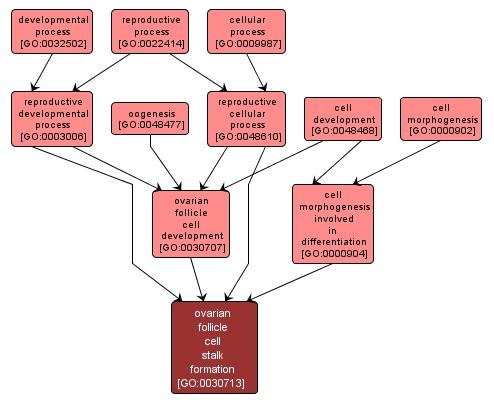GO TERM SUMMARY
|
| Name: |
ovarian follicle cell stalk formation |
| Acc: |
GO:0030713 |
| Aspect: |
Biological Process |
| Desc: |
Development of ovarian follicle cells to create the interfollicular stalks that connect the egg chambers of progressive developmental stages. An example of this process is found in Drosophila melanogaster. |
|

|
INTERACTIVE GO GRAPH
|














